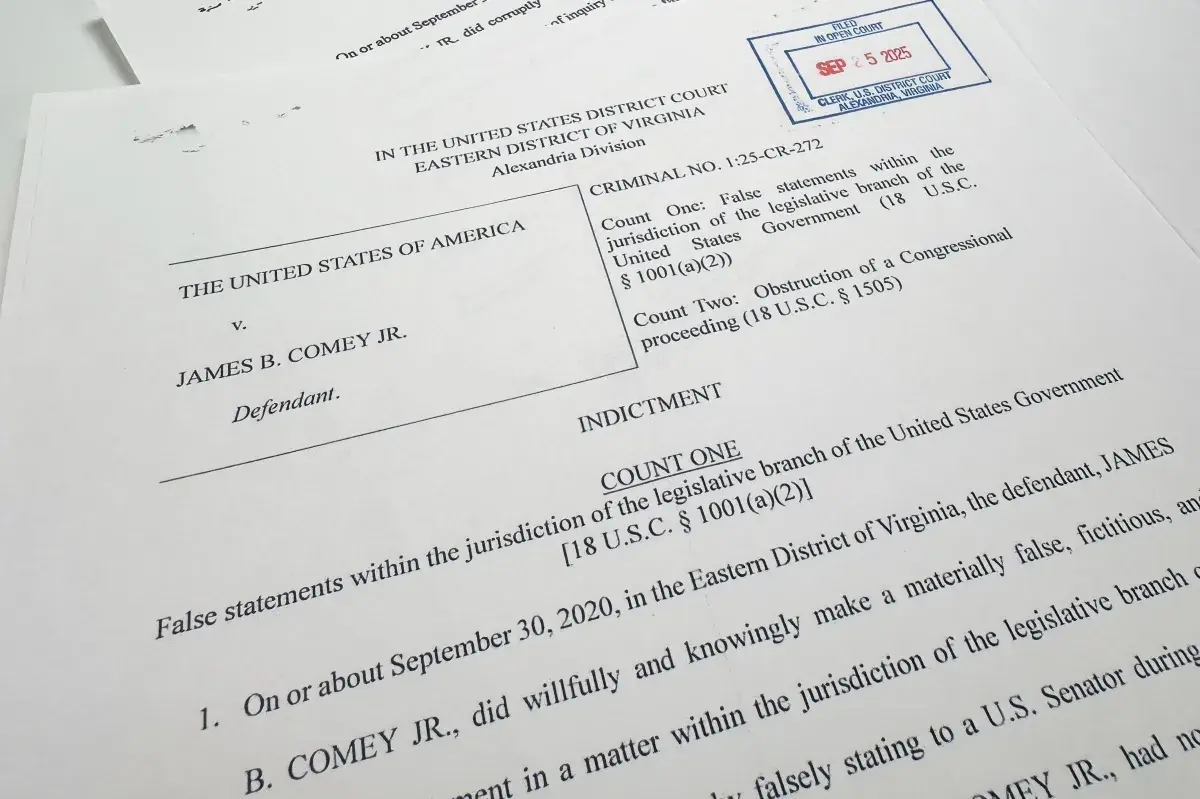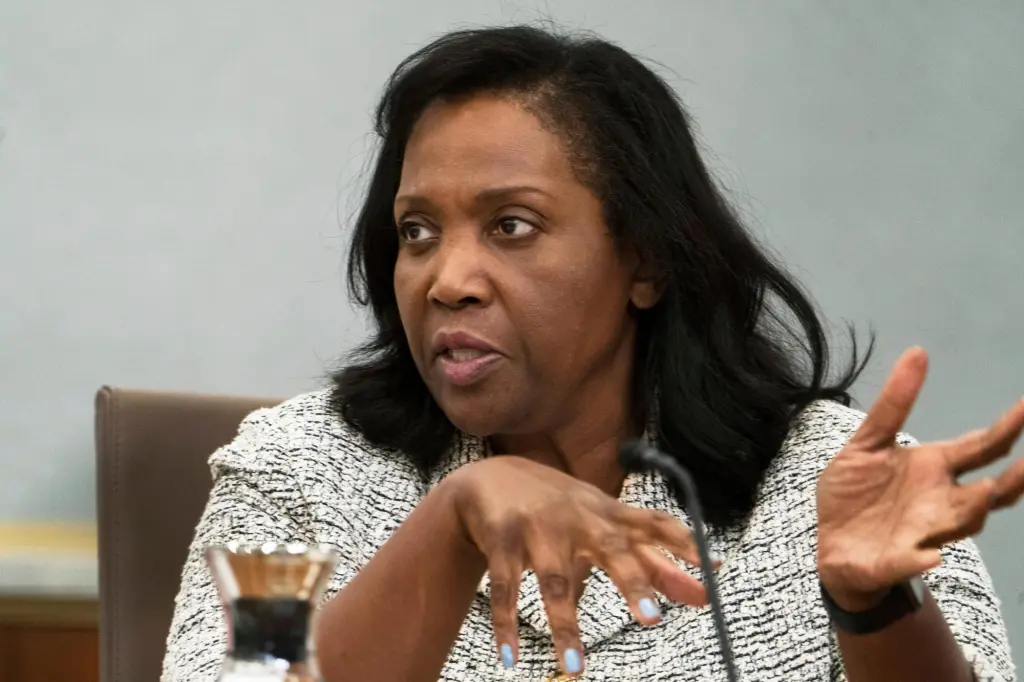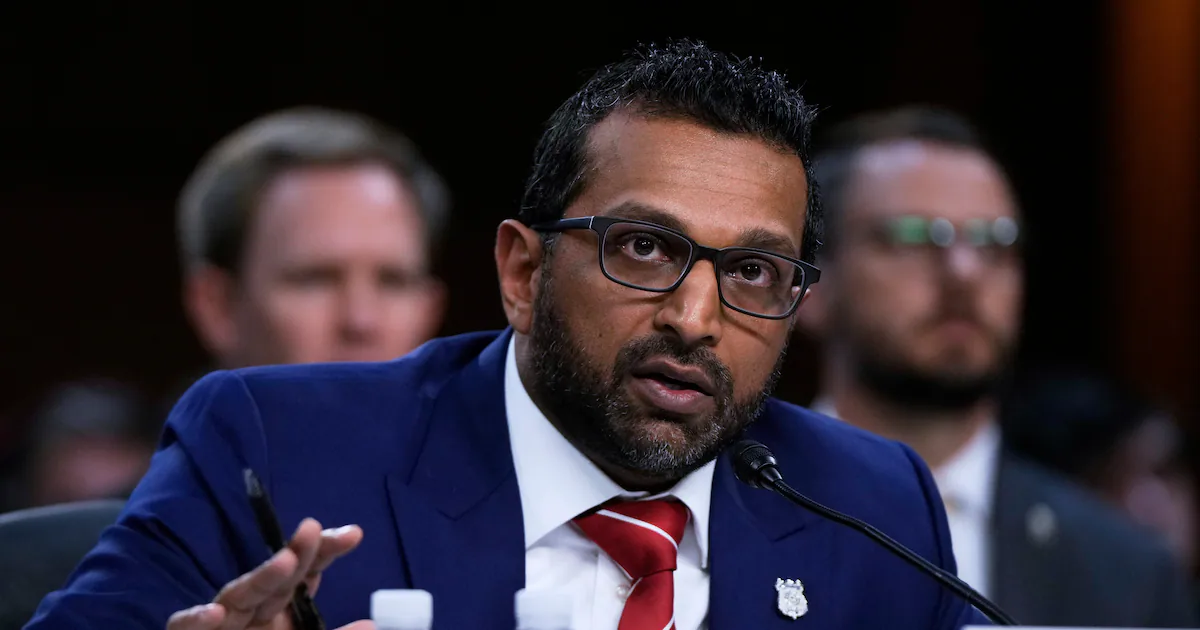
A federal grand jury in Alexandria, Virginia, has indicted former FBI Director James B. Comey Jr. on two felony charges tied to testimony he gave before the Senate Judiciary Committee in September 2020.
The indictment, unsealed on September 25, charges Comey with making false statements to Congress and obstruction of a congressional proceeding—both punishable by up to five years in prison.
Newsweek contacted the Department of Justice for comment via email outside of normal office hours on Friday.
Why It Matters
The indictment matters well beyond James Comey himself. At its core, the case tests whether Congress can rely on truthful testimony from senior officials and whether the Justice Department can enforce that obligation free from political pressure. Prosecutors must prove not only that Comey misled lawmakers but that he did so knowingly — a high legal bar.
How the charges are handled will signal the strength of congressional oversight, the independence of federal prosecutors, and whether criminal law can be applied even-handedly when political stakes are high.
What To Know
The Charges In The Indictment
The indictment stems from Comey’s sworn appearance during a Judiciary Committee hearing on the FBI’s handling of investigations into Russian interference in the 2016 election and related matters. Prosecutors allege that Comey knowingly misled senators on two points.
First, the government claims Comey falsely denied authorizing anyone at the FBI to act as an anonymous source to the media regarding an investigation. According to the charging document, he “did willfully and knowingly make a materially false, fictitious, and fraudulent statement … by falsely stating to a U.S. Senator … that he had not ‘authorized someone else at the FBI to be an anonymous source in news reports’ regarding an FBI investigation concerning Person 1.” The indictment asserts that Comey had, in fact, directed another FBI official to speak to reporters.
Second, prosecutors allege Comey obstructed Congress by making “false and misleading statements” that aimed to impede the committee’s inquiry into the FBI’s actions before and after the 2016 election.
A third proposed count—”Obstruction of a Congressional proceeding (18 U.S.C. § 1505)”—was rejected by the grand jury. Court records show jurors did not find sufficient evidence on that point, an uncommon but lawful outcome in grand jury proceedings.
Legal Meaning of the Charges
Under 18 U.S.C. § 1001(a)(2), it states that is a crime to knowingly and willfully make materially false statements to Congress or any branch of the federal government.
Prosecutors must show that Comey’s statements were false, that he knew they were false at the time, and that the information could influence the legislative inquiry.
The obstruction charge (18 U.S.C. § 1505) requires proof that Comey acted “corruptly” to influence or impede a congressional investigation.
Legal experts note that proving intent can be challenging; “even if James Comey got things wrong, that doesn’t mean that he knowingly or intentionally lied to Congress,” Loyola Law School professor Laurie Levenson told BBC News.
Process and Reaction
Comey, the first former FBI director to face federal indictment for testimony to Congress, declared his innocence. “My heart is broken for the Department of Justice, but I have great confidence in the federal judicial system, and I’m innocent, so let’s have a trial,” he said in a video statement.
His attorney, Patrick Fitzgerald, said they looked forward to “vindicating him in the courtroom.”
If convicted, Comey faces a maximum of five years on each count, though sentencing guidelines and judicial discretion would influence any penalty.
Consequences
Beyond potential prison time and fines, the case carries institutional implications. It tests the Justice Department’s independence from presidential influence—a concern raised by career prosecutors who reportedly opposed the indictment. It also places new focus on the accuracy of sworn congressional testimony by senior officials.
For Comey, the trial could revisit controversies from his tenure, including the FBI’s handling of politically sensitive investigations. For Congress, it underscores the legal stakes of oversight hearings. And for the Justice Department, the case will be closely watched as a measure of whether such prosecutions can be insulated from politics and proven under the law’s demanding standards.
What People Are Saying
Former FBI Director James B. Comey Jr., complete video statement, September 26, 2025: “My family and I have known for years that there are costs to standing up to Donald Trump, but we couldn’t imagine ourselves living any other way. We will not live on our knees, and you shouldn’t either. Somebody that I love dearly recently said that fear is the tool of a tyrant, and she’s right, but I’m not afraid, and I hope you’re not either. I hope instead you are engaged, you are paying attention, and you will vote like your beloved country depends upon it, which it does. My heart is broken for the Department of Justice, but I have great confidence in the federal judicial system, and I’m innocent, so let’s have a trial and keep the faith.”
Attorney General Pam Bondi said: “No one is above the law … Today’s indictment reflects this Department of Justice’s commitment to holding those who abuse positions of power accountable for misleading the American people.”
What Happens Next
James Comey will be arraigned on October 9 in federal court in Alexandria, where he is expected to plead not guilty and the judge will set release conditions.
His lawyers are likely to file motions to dismiss, arguing political pressure and insufficient evidence, while prosecutors prepare to turn over transcripts and records tied to his 2020 Senate testimony.
If the case survives those challenges, it will move into discovery and potentially to trial, where each felony count carries up to five years in prison, but sentencing would depend on guidelines and judicial discretion.
Any conviction would almost certainly be appealed, and the proceedings will be closely watched for how the Justice Department handles allegations of political influence in high-profile prosecutions.



